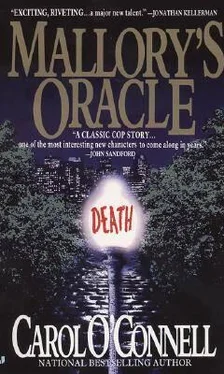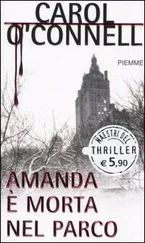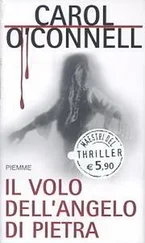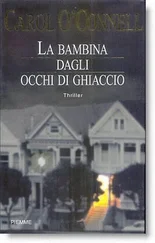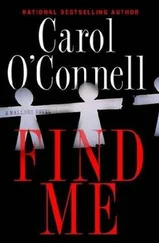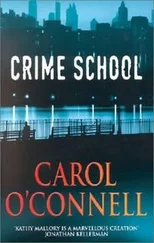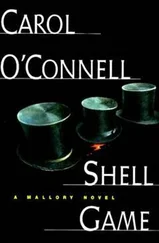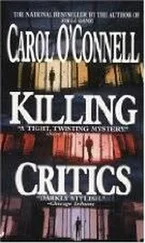Cathery never answered him but put his own set to one side and looked up with the apprehension of one unaccustomed to this little social dance, unfamiliar with the steps. In that moment, Charles understood him with an insider's knowledge. This brilliant young chess master had all the socialization skills of a very small child. Charles smiled and sat down, placing the peg board on the bench between them. He held up the white to Cathery. The boy nodded. Their conversation had begun, though more than twenty minutes would pass before any more words were exchanged.
A glance at the magnet set allowed him to predict Cathery's opening, a classic game from a championship match.
Yes, that was it. Three moves later, it was apparent that Cathery was extending the chess problem to the new game. Charles called up the playing field from a page in a chess book and moved accordingly. And accordingly, Cathery's every move was predictable. If he continued to play with all the original moves, Cathery might catch on. The boy probably had no eidetic memory – that was rare – but he would certainly have committed these particular moves to what memory storage he had.
While Cathery's eyes were fastened to the board, Charles ran through the possibilities of more obscure games to match the opening. It was dishonest in a way, he supposed – Mallory had her influences on him – but if he didn't provide a master game, he might not be able to hold Cathery for long in a conversation about the weather.
"I've never seen you here before," said the boy, tossing a bishop into harm's way in a mad rush for a new queen. "You just moved in?"
"No, I don't live here." Charles spared the bishop and plotted to take down the would-be queen. "My cousin used to live in that house." He nodded to the other side of the park. "I expect it's been divided up into apartments now. It was a wonderful old place. I used to play in this park when I was a child. It hasn't changed. Peaceful, isn't it?"
Cathery nodded. "I'll never leave here."
Charles believed him. Now that Cathery was grown and beyond the torture of children, he would find this place a perfect environment for a solitary chess-player. No street people, no panhandlers to interrupt his game, to break his concentration with acts of supplication or acts of insanity. Henry Cathery would thrive on simplicity. There was nothing about his person to say he went to any trouble about his clothing or his hair. The spotty beard was an obvious growth of neglect. The boy would always opt for extreme simplicity, less distraction from the game.
"Henry!"
But just now, a distraction in the form of a thin young woman was calling to Cathery from the gate. Her hair was matted and her long, dark red dress was torn. An over-large vest of faded brocade was her only cover against the chill October morning. He found it interesting that she called Cathery by his given name.
Charles waited for Cathery to move his piece and lift his eyes. He nodded towards the girl at the gate. Cathery looked at her and, never changing his expression, said, "Ignore her. She'll go away in a while. Your move."
"Isn't she a friend of yours?"
"No."
Such a friendship did seem unlikely. Henry Cathery had grown up with money in a protected environment. While this one at the gate had the look of the homeless, a young woman with nowhere to be.
"I have no friends," said Cathery.
And Charles believed that too. Again, less distraction.
"And no family?"
"Not now."
Less distraction.
The young woman paced back and forth in front of the gate. Panic was jerking and twitching in every muscle of her body. Then, suddenly, she stopped her walking to and fro. She held tightly to the bars and pressed her face to the iron. Relaxing with a gradual sag and a slant of her body, her hands dropped away from the bars. The spasmodic agitation was gone now. She slowly moved off down the sidewalk and carried herself away from the park with a poignant grace. Charles stared after her until she was out of sight. He felt an unaccountable sadness.
Cathery looked up at him with only a shading of impatience. Charles brought down Cathery's would-be queen, and that set the boy back a bit. In the time the old master's stroke had bought him, Charles turned to stare at the little buildings at the east end of the park.
"So that's where the first murder happened. I should think that would be a more interesting problem than a chess game."
Cathery had put out one fleshy hand to castle his king. The hand hovered, concentration broken, as his eyes turned to the shed.
"I don't see the problem," he said.
"A daylight murder with all these witnesses? I call that interesting."
"Nothing to it," said Cathery. "He laid her down quick, cut her throat to shut her up, and then he cut her some more. The shrubs could hide that much. She was old. She couldn't have put up much of a fight."
"How do you know her throat was cut?"
"Everyone knows her throat was cut. Ten people must have come out to look at the body before the cops showed up."
"Did you see the body?"
"Sure."
"Did you notice anything else besides the cut throat?"
"No. She was partly covered by a garbage bag. No one touched her before the police came. They only wanted to look at a dead body."
There was no pain in the recollection of his grandmother's brutal killing. It was a sterile subject and an annoying distraction.
"But those benches face the building. Not much between the benches and the spot where she died. And no one noticed a stranger in the park that day."
"Then it wasn't a stranger," Cathery shrugged. "Easier."
"No. Think it through. You're too accustomed to dealing with the flat of a board. See the face at that window?" He pointed up to a second-floor apartment window set in red brick.
Cathery squinted up. A head of white hair was bobbing behind the window glass.
"Now, look over there," said Charles.
Another face, this one much younger, looked down on them from the other side of the street.
"The police love people like that. There's at least one professional watcher in every neighborhood. How many windows in this square? Someone had to be watching, but no one came forward. Perhaps the witnesses didn't know what they were witnessing. Is that possible? That doorman faces the murder site. Maybe he was inside when it happened. But what are the odds that no one was looking at the spot at any given minute of the day? The shrubs would cover a prone body. But how do you do a violent bloody murder like that one with no real cover? And what fool would take that risk?"
"It would be the ultimate high, wouldn't it?"
"Pardon?"
"You saw that girl at the gate. When she was in high school, she used to steal things from stores. What she stole was stuff she couldn't use half the time. She said it was a rush. It was exciting."
When their game was ended in a stalemate, Charles quit the park and closed the gate behind him. He looked back to see Cathery staring up at the watcher with the white head. The watcher withdrew from the window – quickly.
***
Mallory had her old man's brains. Jack Coffey would admit that much. All the damn interview notes NYPD had collected in the past three months, reams and reams of notes, and no one had made the seance connection.
He looked at her sitting quietly on the other side of his desk and wished he had her back on duty again. Until this morning, he hadn't realized how much he'd missed her in the past two months. There was a time, not so long ago, when he had kept track of her off-duty hours, and felt the lack of her in the way he dragged himself to work on the days when she would not be there, driving him nuts with sarcasm and just a trace of perfume. Two months was a long time to be missing her perfume.
Читать дальше
